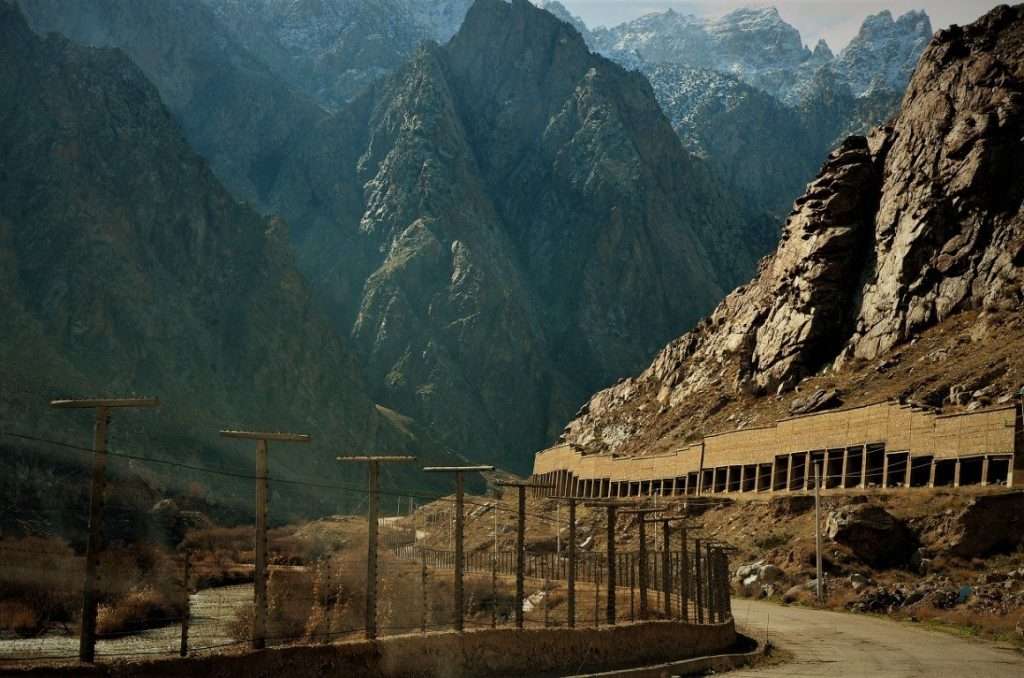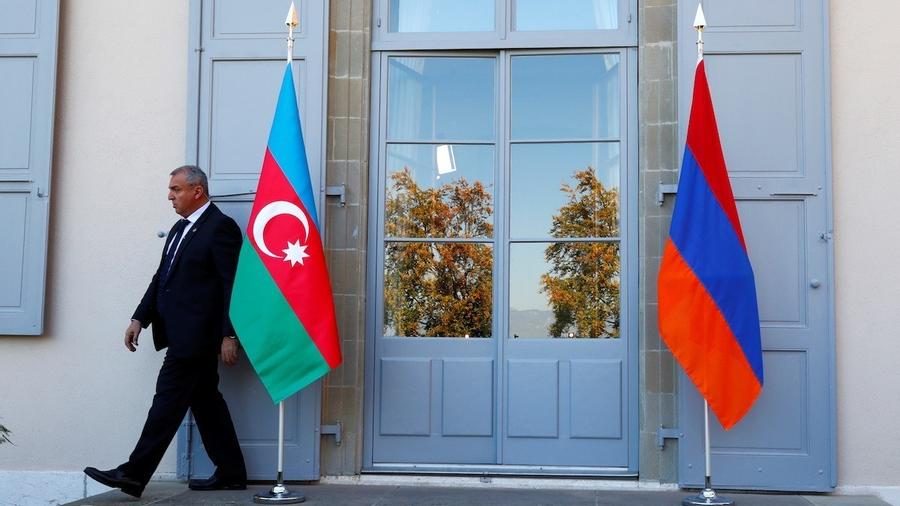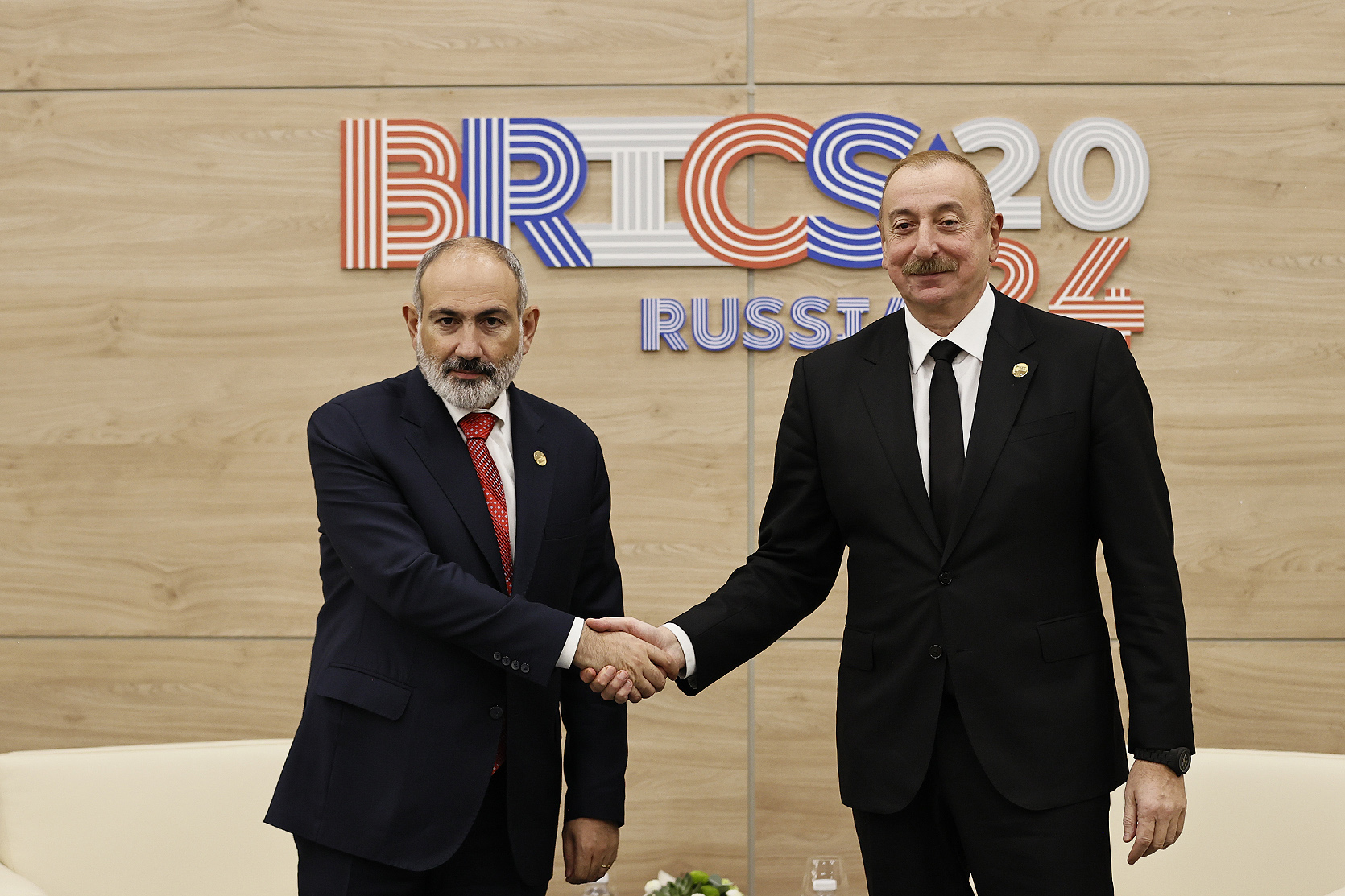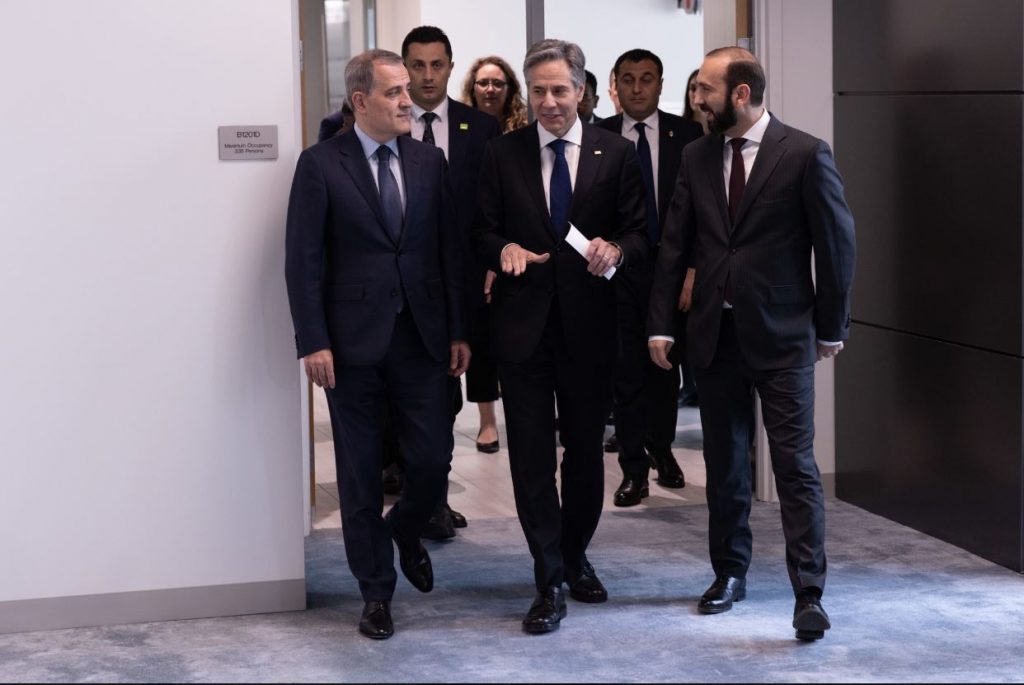
Armenia considers talks without Russia
Armenia does not rule out the possibility of discussing the unblocking of regional communication routes with Azerbaijan bilaterally, through a dialogue format between Deputy Prime Ministers Grigoryan and Mustafayev. This implies that negotiations may proceed without Russia, which previously acted as a mediator and participant in these discussions.
“Everything is possible. I must say that we are moving towards a positive outcome through small, very small bilateral steps,” Armenian Parliamentary Speaker Alen Simonyan told reporters, without providing further details.
The last meeting of the trilateral commission took place a year ago, in June 2023. However, Moscow continues to assert that “unblocking is only possible with Russia’s involvement.”
Co-chair of the Armenian State Commission on border delimitation, Deputy Prime Minister Mher Grigoryan, recently stated that trilateral working group meetings are not occuring due to “fundamental disagreements.” This may point to disagreements involving Russia and related to sovereign control over the routes. Armenian authorities maintain that no part of the country’s territory can be controlled by a third party, while Russia seeks to assume this role if communications are unblocked.
As for bilateral discussions, Armenian Foreign Minister Ararat Mirzoyan recently reported that proposals on unblocking have been submitted to Baku, specifically regarding “border crossing and the simplification of customs procedures.” The details of what has been proposed to Azerbaijan are still unknown, but Chairman of Armenia’s State Revenue Committee Rustam Badasyan explained that the “simplified procedure” involves prior exchange of export data and other necessary information, such as “scanner images.”
- “Armenia isn’t militarizing but raising cost of attacking it”: opinion
- “Baku wants Yerevan to acknowledge its hegemony” – Armenian political analyst
- “Zangezur Corridor is Armenia, full stop,” – Bundestag representative in Yerevan
Talks between Deputy Prime Ministers
The office of Armenian Deputy Prime Minister Mher Grigoryan did not inform journalists whether Armenia and Azerbaijan would form working groups to start bilateral negotiations on unblocking communications, stating that they would only respond to a written media request.
However, on November 1, Mher Grigoryan and Shahin Mustafayev met at the border between the two countries. The deputy prime ministers held a session of the commissions on delimitation. It was been revealed that during the meeting they exchanged ideas not only on the delimitation process and the specific border sections where it would continue but also on unblocking communications.
“After the commission meeting, Grigoryan and Mustafayev separately discussed issues related to transport communications,” the official statement read.
Armenia holds firm on its terms for unblocking communications
The issue of unblocking communications remains one of the most challenging in the Armenian-Azerbaijani negotiations. It was therefore even excluded from the draft peace agreement. Azerbaijan insists that Armenia provide an extraterritorial road to connect with its exclave, Nakhchivan, referred to as the Zangezur corridor. Armenian authorities maintain that they are willing to provide roads, but under their own jurisdiction. In other words, they do not agree to cede sovereign control over this territory, which the term “corridor” implies.
“It’s impossible to explain our position any more clearly than we already have. There isn’t a place in the world where we haven’t brought the Crossroads of Peace booklet [an Armenian government initiative on unblocking communications]. From now on, I can only negotiate within the framework of the Crossroads of Peace project,” Mher Grigoryan recently stated.
Commenting on the issue of control and the possible presence of a “third party” on the road connecting Azerbaijan to Nakhchivan, the Deputy Prime Minister noted, “The security on Armenian territory will not be ensured by forces from any third country.”
The Armenia-Russia-Azerbaijan trilateral meetings have not continued, as, according to the Deputy Prime Minister, “there are fundamental disagreements,” and without consensus, discussing details is pointless:
“Customs control and border functions must be full and sovereign. In this case, Armenia will be ready for unblocking.”
Beyond reopening of Meghri railway
Until 2022, Yerevan and Baku discussed the reopening of the Meghri railway under Moscow’s mediation. The Armenian government made preliminary estimates, projecting that the railway construction would cost $200 million. However, construction never began, as Armenia hoped to first sign a peace agreement. This agreement is still under negotiation, and the topic of unblocking communications was mutually excluded from the draft peace agreement in August this year.
According to Minister of Territorial Administration and Infrastructure Gnel Sanosyan, current negotiations are focused on the full implementation of the Crossroads of Peace project:
“We discussed the Meghri railway, the Yeraskh section, and the Ijevan section—essential infrastructures that once operated but are currently inactive. The possibility of restarting them is being discussed.”
The minister stated that if agreements are reached with Azerbaijan, preliminary calculations will be completed swiftly, and the project will commence:
“We will prepare a budget, allocate funds by year, and determine the necessary annual amount. We see no issue with this. The Armenian government is capable of implementing projects on this scale, and countries often use credit resources to realize such projects.”
Armenia considers talks without Russia



